Drone Laws in Colorado

Paying attention to everything the FAA has put forth since their rules and regulations were initially put into full effect is crucial for all drone fliers. Are you aware of the laws and regulations related to drones in your state, as well?
Learn All The Drone Rules & Regulations
This article will give a brief overview of the laws in your state, but we can’t keep cover all the minutae in only two thousand words. That’s why we highly recommend that you do some research on your own time and, ideally, enroll in a professional course if you’re actually looking to get certified. Though there’s lots of options for learning more about drone laws, we highly recommend the#1 Rated Professional Course: Drone Pilot Ground School. Get $50 Off as a Dronethusiast reader, just click the link and sign up. It’s a great way to learn about drone laws and piloting that’s cheaper than most of its competition, you can purchase it once and own it forever and they’re constantly updating their professional training.
Flying Over Colorado
Unfortunately, it would seem that the only areas drone users in Colorado are able to fly legally are up in the mountains and smaller areas. A lot of areas are unclear as to whether or not drones are allowed.
Thankfully for drone enthusiasts living in Colorado, it’s legal to fly your drone in the Colorado Rockies, specifically in the highest point. Mount Evans is a whopping 14,240 feet in the air and one of the best places in the entire state to get some footage.
White River National Forest’s own Hanging Lake area is legal, apparently, as well! It’s a beautiful mountain lake that offers crystal clear waters flowing from the incredible waterfalls. Perfect for quick shots!

The Registering Process in Colorado
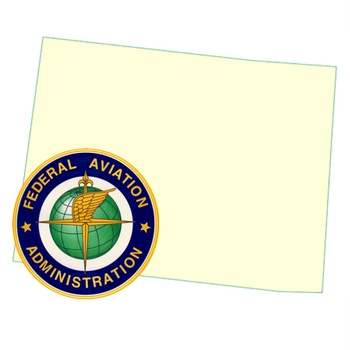
The Federal Aviation Administration (FAA) requires that all Small Unmanned Aircraft Systems (UAS) owners follow strict regulations and laws. You will need to file your name, home address and your email address as a start.
From there, you will receive a Certificate of Aircraft Registration and Proof of Ownership. These will include an identification number for your aircraft. You must have this number displayed on your drone at all times. The number will be valid for up to 3 years.
All aircraft that weighs more than 0.55 pounds, or 250 grams, and less than 55 pounds, or 25 kilograms, must be registered. This also includes any added payloads, such as an onboard camera.
You must be at least 13-years-old in order to register and, effective December 21st, 2015, all newly purchased or made drones must be registered before their first flight. You are able to register through a paper-based process, but you can also do so online by clicking here.
Proximity to Airports in Colorado
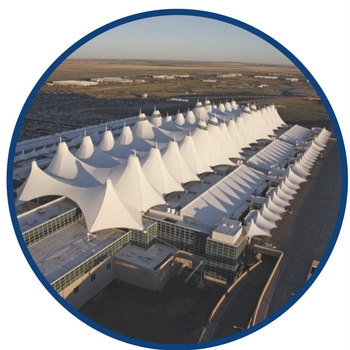
As a general rule of thumb, and in accordance with the law from the FAA, you may not fly within a 5-mile radius of any airport. In 2012 the FAA enacted the Modernization and Reauthorization Act which requires hobbyist drone operators, meaning residential, to contact air traffic control and/or airport management if they are operating within a 5-mile radius of any local airport.
This is enacted nationwide, not only in Colorado, under Part 101 of the Act, being Special Rule for Model Aircraft, to ensure that drone operations under unsafe conditions are disapproved before the drone can be launched.
Regardless of the local airport you will be flying near, and possibly breaching airspace, you will need to contact either the airport air traffic control tower or the airport operator.
You will need to establish an agreed-upon operating procedure with airport air traffic or the airport operator and answer a couple of questions. For example, questions relating to how long you are going to be flying for.
Unique Drone Laws in Colorado
At this time of writing, all of the legal information listed below is deemed as accurate as possible and fully in effect.
Code of Colorado Regulations 406-0 #004 – AIDS IN TAKING WILDLIFE
C. It shall be unlawful to use a drone to look for, scout, or detect wildlife as an aid in the hunting or taking of wildlife.
For the purposes of this regulation, drone shall be defined as including, without limitation, any contrivance invented, used or designed for navigation of, or flight in the air that is unmanned or guided remotely. A drone may also be referred to as “Unmanned Aerial Vehicle” (UAV) or “Unmanned Aerial Vehicle System” (UAVS).
Municipal Law – Town of Telluride
During a recent council meeting, the Town of Telluride adopted multiple regulations regarding drone use. As of April 18th, 2017, the proposed ordinance has been put into place as a law.
Any drone users looking to fly must first have approval from owners of private property where the flight will take place or from the town itself. Endangering both people and wildlife and operating a drone in a reckless manner is strictly prohibited. They must also keep their distance from any wildlife or people who are not involved in the flight operation directly.
Drone users must also ensure that they are not under the influence of marijuana, alcohol, or any controlled substance in general. They must also not have any preexisting physical or mental conditions that may interfere with flying safely.
Municipal Law – Cherry Hills Village
Cherry Hills Village has enacted a law that requires all drone users to follow guidelines and regulations set in place by the FAA and by registered with the FAA.
Drones are prohibited from flying over public buildings, trails, public parks, public streets, and any area that is deemed to be city property.
Drone Ban in Local Ski Resorts
There are a number of ski resorts located across Colorado that have placed a ban on drone use, which you can inquire further on by clicking here.
Other Legal Issues With Drones in Colorado
At this time of writing, there are currently a number of bills in circulation within the state of Colorado surrounding drones.
Municipal Regulations – Town of Breckenridge
The proposed ordinance would allow local authorities to enforce FAA regulations and address interference with firefighters and local law enforcement, voyeurism and reckless operation. It also includes having a deadly weapon or firearm equipped on the drone, interfering with any government emergency operations whatsoever, and using a drone for surveillance that has not been permitted by law.
Drone users will be unable to takeoff, land, or operate in general on any property owned by the town. Prohibited by law, if approved, annoying or harassing wildlife, in general, will also be included.
Further, it would also ban drone flight over restricted areas, such as the Carter Park Dog Park, Cucumber Gulch Preserve, the local golf course and the Nordic center if golfers and/or skiers are present.
HB 15-555 Trespassing & Harassment
A BILL FOR AN ACT
CONCERNING PRIVACY IN REGARD TO EMERGING TECHNOLOGIES.
Bill Summary
(Note: This summary applies to this bill as introduced and does not reflect any amendments that may be subsequently adopted. If this bill passes third reading in the house of introduction, a bill summary that applies to the reengrossed version of this bill will be available at http://www.leg.state.co.us/billsummaries.)
A person commits the crime of first degree criminal trespass if he or she is not a peace officer or other agent of a state or local government agency acting in his or her official capacity and he or she knowingly and intentionally uses an unmanned aerial vehicle (UAV) to observe, record, transmit, or capture images of another person when the other person has a reasonable expectation of privacy.
A person commits harassment if he or she is not a peace officer or other agent of a state or local government agency acting in his or her official capacity and, with intent to harass, annoy, or alarm another person, he or she uses a UAV to track a person’s movements in or about a public place without the person’s authorization.
The bill amends existing law concerning the retention of passive surveillance records by government agencies to contemplate the retention of records that are obtained through the use of UAVs.
Be it enacted by the General Assembly of the State of Colorado:
SECTION 1. In Colorado Revised Statutes, add 18-7-802 as follows:
18-7-802. Criminal invasion of privacy by the use of a device – penalty.
EXCEPT AS DESCRIBED IN SUBSECTION (2) OF THIS SECTION, CRIMINAL INVASION OF PRIVACY BY USE OF A DEVICE OCCURS WHEN A PERSON KNOWINGLY AND INTENTIONALLY CAPTURES ANY PHOTOGRAPH, SOUND RECORDING, OR OTHER PHYSICAL IMPRESSION OR DIGITAL IMAGE OF ANOTHER PERSON, WITHOUT THAT PERSON’S CONSENT, IN A SITUATION WHERE THAT PERSON HAS A REASONABLE EXPECTATION OF PRIVACY, THROUGH THE USE OF ANY DEVICE REGARDLESS OF WHETHER THERE IS A TRESPASS, IF THE PHOTOGRAPH, SOUND RECORDING, OR OTHER PHYSICAL IMPRESSION OR DIGITAL IMAGE COULD NOT HAVE BEEN ACHIEVED WITHOUT A TRESPASS UNLESS THE DEVICE OR ANOTHER DEVICE WAS USED.
SUBSECTION (1) OF THIS SECTION DOES NOT APPLY TO A PEACE OFFICER OR AN EMPLOYEE OR OTHER AGENT OF A FEDERAL, STATE, OR LOCAL GOVERNMENT AGENCY ACTING IN HIS OR HER OFFICIAL CAPACITY.
CRIMINAL INVASION OF PRIVACY BY USE OF A DEVICE IS A CLASS 3 MISDEMEANOR.
SECTION 2. Act subject to petition – effective date. This act takes effect at 12:01 a.m. on the day following the expiration of the ninety-day period after final adjournment of the general assembly (August 5, 2015, if adjournment sine die is on May 6, 2015); except that, if a referendum petition is filed pursuant to section 1 (3) of article V of the state constitution against this act or an item, section, or part of this act within such period, then the act, item, section, or part will not take effect unless approved by the people at the general election to be held in November 2016 and, in such case, will take effect on the date of the of the official declaration of the vote thereon by the governor.
At this time of writing, this bill is still up for enforcement.
HB 16-1020 No Drones Near Airports or Jails
A person commits introducing contraband in the first degree if he or she knowingly and unlawfully operates any unmanned aircraft system (UAS) within 5 miles of a detention facility with the intent to introduce or attempt to introduce a dangerous instrument, alcohol or an alcoholic beverage, a controlled substance, or marijuana or marijuana concentrate into the detention facility.
A person shall not operate a UAS:
Within 5 miles of an airport unless the person is authorized by the airport’s air traffic control tower;
In a manner that interferes with the operation of manned aircraft;
More than 400 feet above the earth’s surface;
In a manner that is prohibited by any federal law or rule;
In violation of any temporary flight restriction (TFR) or notice to airmen (NOTAM) issued by the federal aviation administration (FAA); or
In the airspace directly above any detention facility.
A person who violates any of these prohibitions commits a class 1 misdemeanor. These prohibitions do not apply to the operation of a public UAS operated in compliance with any current and enforceable authorization granted by the FAA.
(Note: This summary applies to this bill as introduced.)
FAQ on Colorado Law and Drones
If you do not see your question, or an answer to it, listed below, feel free to get in touch with us and we’ll gladly give you one.
Is a drone/UAS considered the same as a model aircraft?
The United States Congress has defined and concluded that a model aircraft is only considered a drone or a UAS when the following points are met:
It’s flown for recreational purposes or as a hobby and not for any business or commercial reasons
It’s flown within visible distance, meaning being able to see it at all times, of the individual operating it
It’s capable of sustaining flight within the atmosphere, meaning that it can fly
If your model aircraft, regardless of whether or not you acquired it pre-built or built it yourself, meets the above points to your knowledge, it’s considered a drone/UAS.
What is the Small UAS Rule?
The Small UAS Rule requires those who have unmanned aircraft systems, or UAS, that weigh less than 55 pounds, payload included, to register their aircraft with the FAA. This only applies to recreational or hobby fliers and not commercial drone use, however.
Is the FAA’s Small UAS Rule still in effect?
Yes, it has been in effect from August 29th of 2016 and is still in effect at this time of writing.
Do I have to carry my Certificate of Aircraft Registration while flying my UAS at all times?
Yes, you must have the registration certificate from the FAA at all times during flight operation. In accordance with federal law, all UAS operators must show their certificate of registration to any local, state, or federal law enforcement officer when they are asked to do so.

What do I do for registration if my UAS is over the 55-pound limit?
If your UAS weighs more than 55 pounds, including payload, you will need to register it by clicking here.
Drone Laws in Colorado
Knowing the laws, regulations, restrictions, etc., regarding drones in your state is extremely important. Remember to educate yourself, follow the rules, fly safely and responsibly, and have fun!

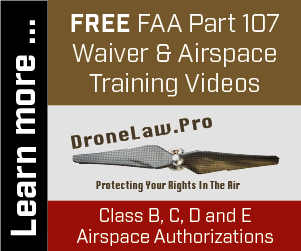
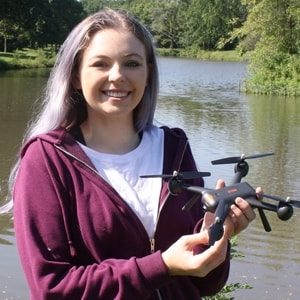

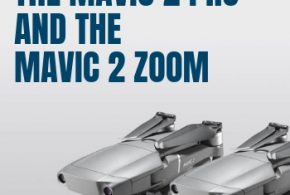
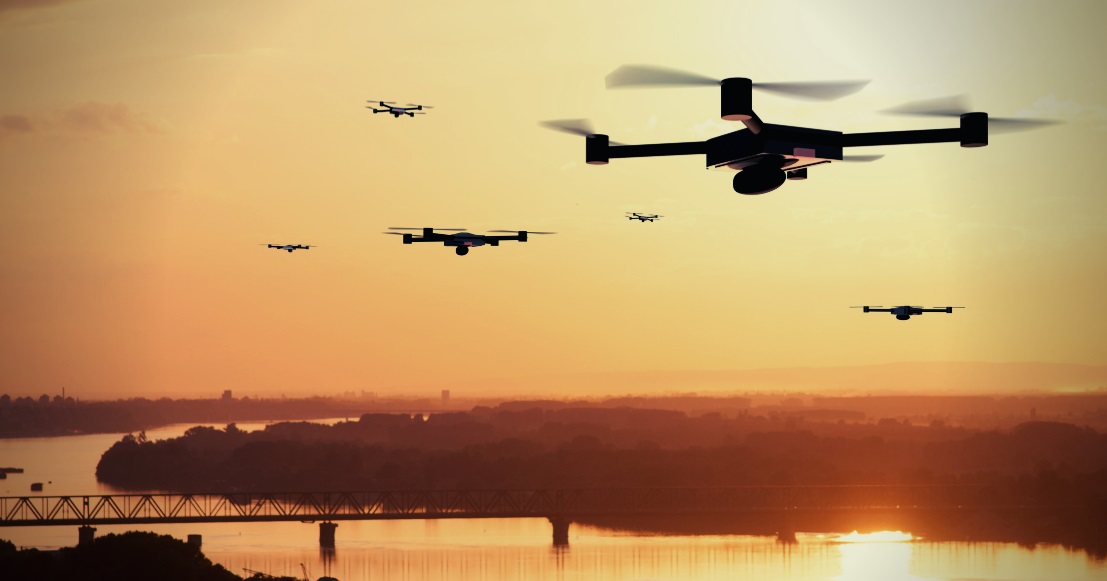
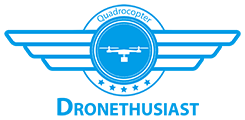
I wonder about the part where it appears the state is duplicates already existing FAA regulations about flying near airports. What’s up with that? Also, be aware the state department of wildlife has regulations prohibiting flught at state wildlife areas.
Nothing was/has been said about launching drones in national forest. Pretty sure it is illegal to launch a drone from a national forest trail HOWEVER you can launch it from a public roadway.
National forests are fine. As long as it’s not within designated “Wildlife” areas. National Parks, and possibly State Parks may be different. You can fly OVER National Parks, but then you risk flying beyond VLOS, in which most everything worth filming is beyond visual line of sight.
How about realtor’s hiring registered drones for the money shot flying under 200 ft over the surrounding homes? I feel that it’s n invasion of my privacy and the peaceful use of my home.
That said, I would have given permission IF. The pilot had asked, or as the quarrelsome Fellow stated “informed me” of his intent.
Good question.
My layman’s understanding is this:
The main test would be that of ability vs intent. If the drone operator is materially invading your privacy, i.e. you can prove the operator is willfully/intentionally flying the drone for the purpose of observing you by way of their camera, you may have a case of privacy violation. Otherwise, a person flying a drone over your property is not automatically considered an invasion of your privacy. This would be very similar to how a contractor who is hired by your neighbor to inspect their roof wouldn’t be invading your privacy just because they can see your yard while conducting a legitimate job.
Just because they “could” doesn’t mean they “are” trying to spy on you and that’s what you’d have to determine to have a claim of privacy violation.
Hope that helps.
-Angel
This web page has been very helpful. However, I was looking for information related to the Dillon Reservoir where I was recently told I could not fly over the water. Note: there where no people present where I was flying and No signs restricting flight. Any additional information on this would be very helpful as I plan to contact Denver Water and discuss this occurrence.
Did you get an answer? Denver Water Board has been using terrorist tactics for decades to deceive and gain control. So i’m more than curious…
Bodies of water that are part of a municipal water supply or water treatment system may enjoy additional protected status by the department of Homeland Security. In that case they have additional regulatory authority.
Do the police have to have a warrant? My town is know to be corrupt and i believe they are also using drones to harass me. A neighbor is the sister in law of a detective in our town. So i believe the nephew of that officer is flying on our private property.
Well folks, I’ve always been a model builder, and enjoyed flight simulation games on my PC, and way back in my teens, had even owned a couple of model airplanes I flew a few times. So I’ve been toying with the idea of possibly getting a drone. But the more I look into it, the less enthused I am….it seems there are so many restrictions on where they can be flown, to make them basically useless to me. I just looked on my city’s (Thornton) web site to see if there were any drone-specific rules or regulations, and found a document for a newly propsed piece of legislation that puts all kinds of restrictions on them. For example, there’s this in the document…
(g) It shall be unlawful to launch, land, or control an UAS in any manner from
any public place and any publicly-owned property, including but not limited
to any open space, park, street, highway, right-of-way, public waterway,
reservoir, stream, or ditch. It shall be unlawful to launch, land, or control
an UAS in any manner from or on private property, even if such property is
open to use by the public, without the permission of the private property
owner.
So based on that, I would say the only place I’m allowed to stand and fly a drone would be my own backyard! If I can’t fly them in any public place or any park, just where in the city COULD I fly them??? Seems to me that there’s just too many restrictions on where you can fly these things to make them useable, unless you’re willing to drive hours out to nowhere to find a place.
Remember that Thornton doesn’t own the airspace. I’m in Westminster and fly the open space near my house. I launch from the bed or roof of my truck. I’m right at 3.1 mi from airport. I call the tower and let them now I’ll be under 300ft and flying at location ‘x’ from ‘this time to this time’. Airport says “have fun”. I have even had a police officer hang out with me, and watch as I had to climb a tree to get my quad.
Which Westminster open space areas would you recommend.
Capp
Question for the pilots. I’ve recently had a new neighbor crash his drone into my house twice this week. I’m not to keen on this. Besides asking him not to crash into my property? What can I do?
Hi Mark. You have two options. Ask him nicely (or forcibly) to not fly over your house (it’s 100% legal for him too), or call the cops and file a report about damage to your property.
We as drone pilots encourage an atmosphere of “fly friendly”, taken from the manned aviation community. Unfortunately not all pilots and drone owners subscribe to it.
And depending on your local laws, you may refuse to allow him to get his drone back if he does it again. But check your local laws.
I am trying to find clarification on the below quoted. My nearest place to fly is at the Coalton Trailhead and out into the Open Space there to the West. It is in Boulder County but not in the “City of Boulder.” I have obtained approval from the FAA through the LAANC system to fly there.
Recently a Boulder County Sheriff Deputy told me it was perfectly fine to fly there. 1 week later there was a problem flying there when a different Boulder County Sheriff Deputy said it was not allowed because it “offends the aesthetic sensibilities of the citizens of Boulder County.” (I am a citizen of Boulder County and not offended)
It seems that I have every right to fly there. Does anyone know what the actual law is in that spot? Or have a recommendation what I should do to be able to fly here in peace?
“In addition to following all FAA rules, people flying drones recreationally must also obey the following city regulation:
You may not launch, land or otherwise operate any unmanned motorized vehicle from or on any City of Boulder Open Space and Mountain Parks land.”
I too would like an answer to this question, effectively this means that other than maybe the model airport over at the boulder res the other areas are no fly right?
By Congressional decree, the FAA is sole source owner for all airspace, from ground up, within the USA. I am a Part 107 Certified Pilot and truly desire to abide by all applicable laws. I further perfectly understand my responsibilities of drone flight and where I may or may not fly. Unless the area is designated as a NO FLY ZONE by the FAA, how is it possible, for lesser entities; i.e., state, city, municipality, private, to place controls on use of airspace not via the FAA?
Is it OK to fly a drone in Red Rock Canyon Open Space area?
is there restrictions in colorado trail. espcially mt massive area seg 9,10
So, I’m here in the Estes Park, CO close to Rocky Mtn Nat’l Park. I’m told I cannot fly in Nat’l Parks, but the campground I’ve been staying in is located just across the road from a small picnic/fishing lake called “Mary’s Lake”. Attempting to fly there, I was stopped by a campground employee stating that I was on U.S. Forest land where “drones” are not allowed. I was not around other people nor wildlife, but later did observe an obscure sign some distance from my planned flight and near the lake dam indicating no swimming nor boating w/in500 ft of the nearby dam with a none-operable phone number (I tried it).
Is this possible this fellow,w/o being employed by the Forestry Service could be representing the facts correctly? I checked with a “Drone Buddy” & one other drone app and this area appeared ‘clear’. Thx.
We have a neighbor in a 150 house subdivision a few miles south of Castle Rock. Our houses sit on an average of 5 acres. This neighbor owns a drone that looks to be about 18″ and flies it recreationally, a few times a week. It often flies over my property. It’s very loud and it’s pitch drives my dogs crazy. The first few times I heard it, I wondered if it was an animal in pain. I’ve dropped them a note, but the fly overs continue. Can you clarify any rules around privacy and noise for me?
What I’m getting is it’s alright to fly over a person’s house or windows. These are neighbors I’m talking about. Even ditch neighbors. Since there flying these God forsaken loud nuisances what about my right to privacy? Isn’t my civil rights being broken by them being nosey neighbors? I’m curious, because it’s very annoying and the loud noise. I know exactly when they are on my property. There’s has to be a nusance law, or annoying law, because what about the person. They go through humilation, harrassed, insulted and everything else. So what about it?
I agree with you entirely. I’d really like some clarification. I stepped out onto my back porch at midnight recently and thought I must have left the sprinklers on—it sounded like a strong spray of water hitting an object. Instead, I looked up a bit and found the neighbor’s drone hovering about 15 ft. or so above my flower bed, directly in line of sight into my un-curtained kitchen window, which is about 18 or so feet away. It hovered for at least 5 minutes. The other night it was a bit higher, but doing a lengthy hover for about 5 minutes, even as I made a poor quality video with my phone. My neighbor down the way told me that she and her husband noticed it hovering in a different location, between my neighbor’s yard and mine,for awhile on a different night.
According to FAA regulations, unless you have a Part 107.29 waiver, flying a drone beyond 30 minutes after sunset until 30 minutes before sunrise is not legal. You can and should call law enforcement and provide the documentation you have to show that the Drone was hovering for an extended period of time after normal operating hours. They should investigate and report any improper activity to the FAA and to the DA to pursue legal ramifications.
This information needs to be Updated with current information. HB 16-1020 was never passed and was postponed indefinitely by the State Legislature.